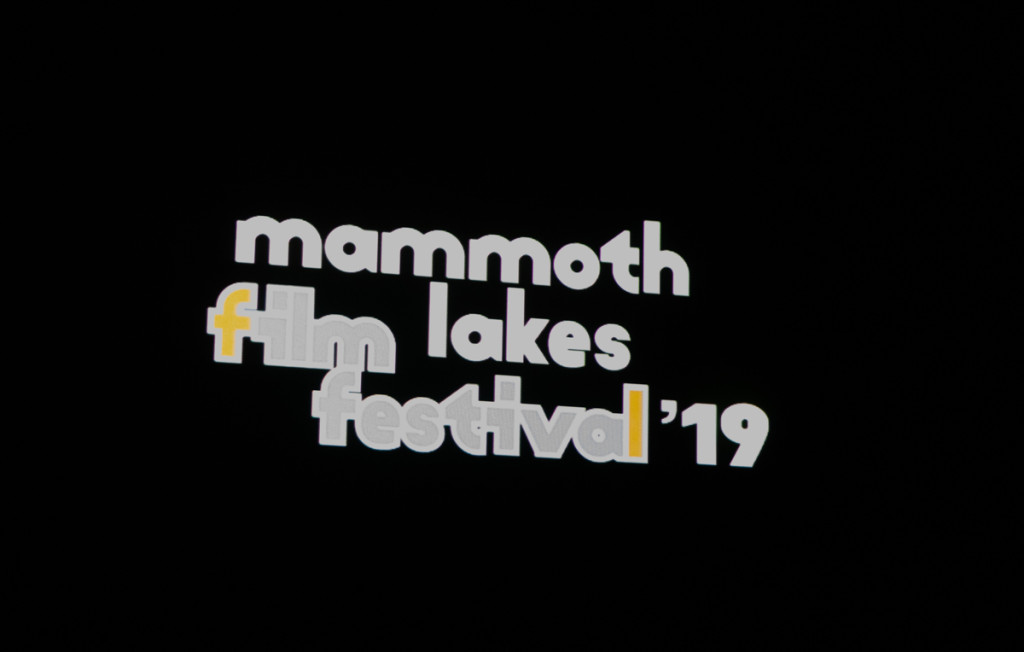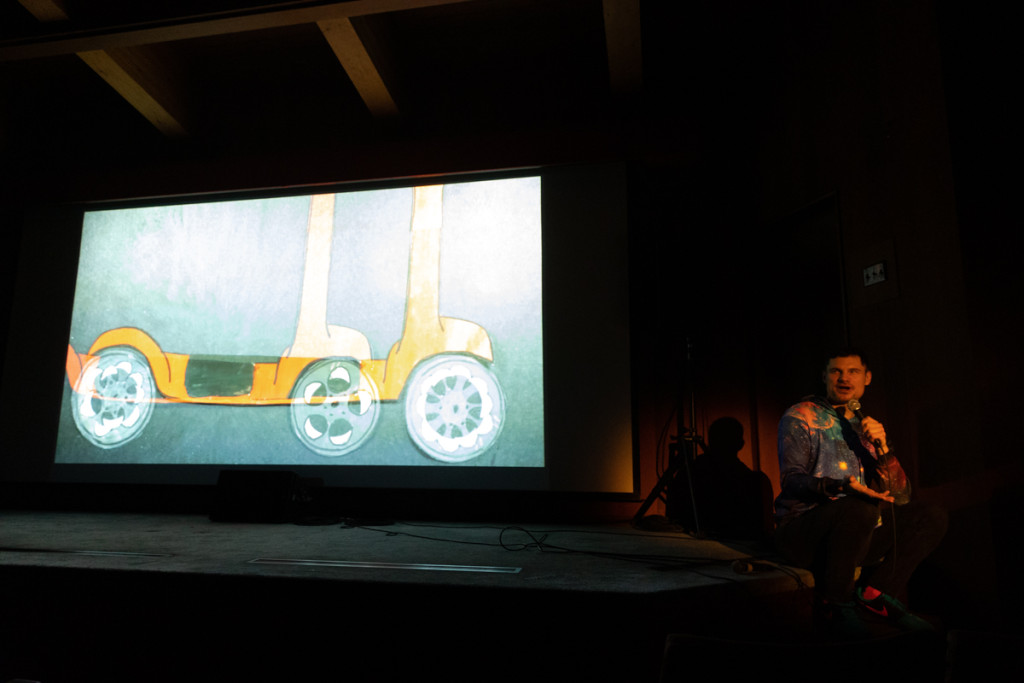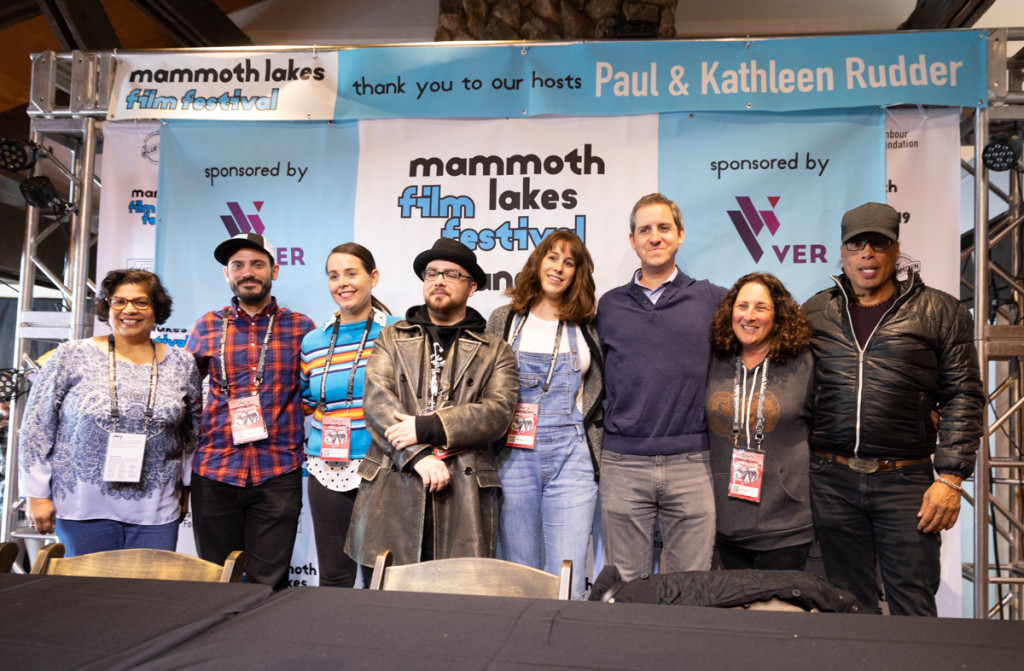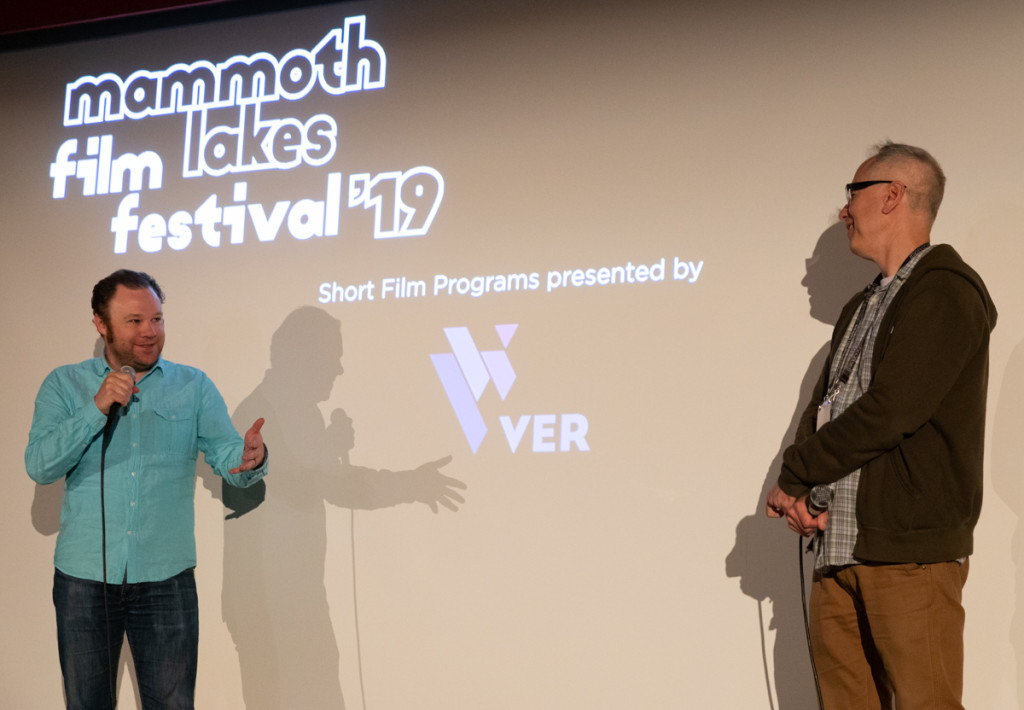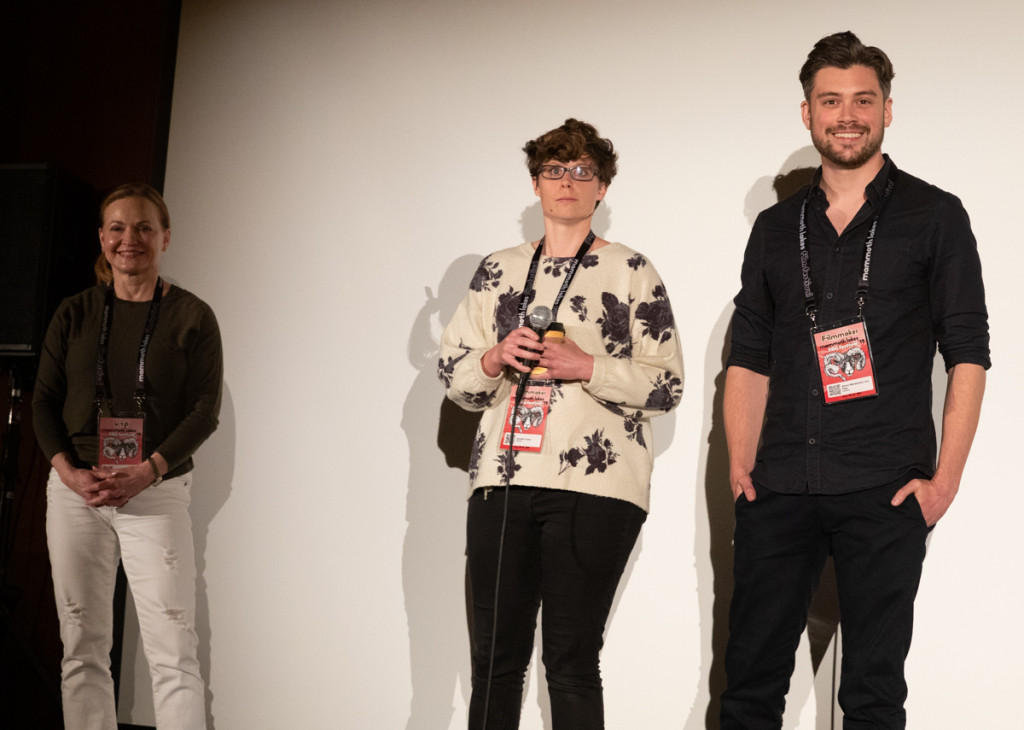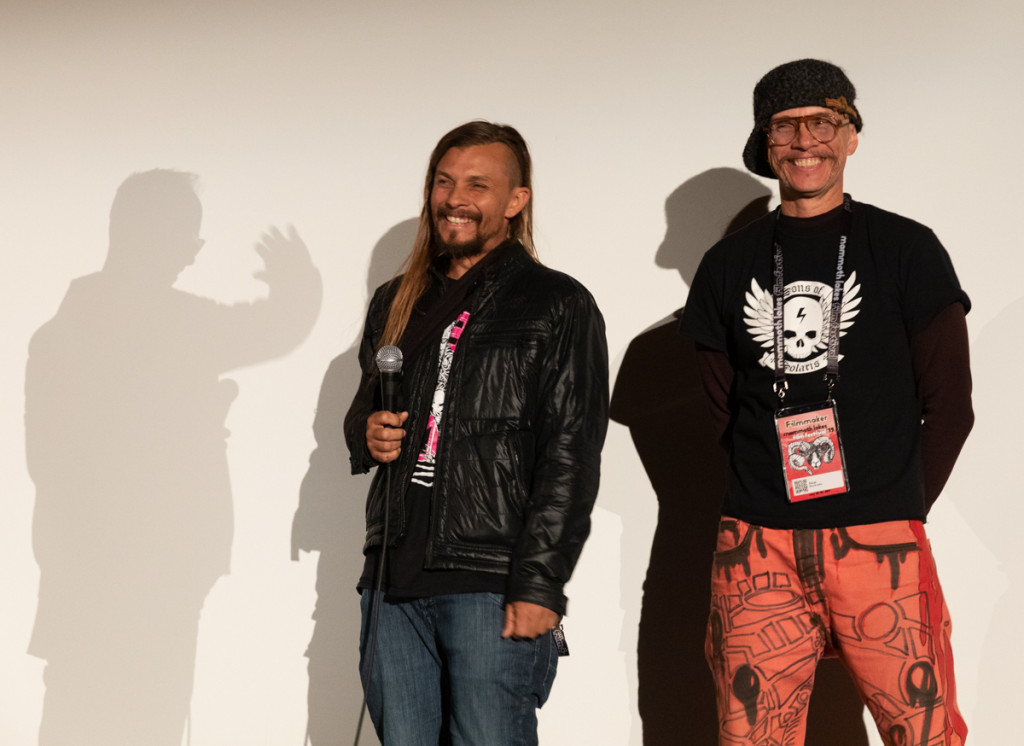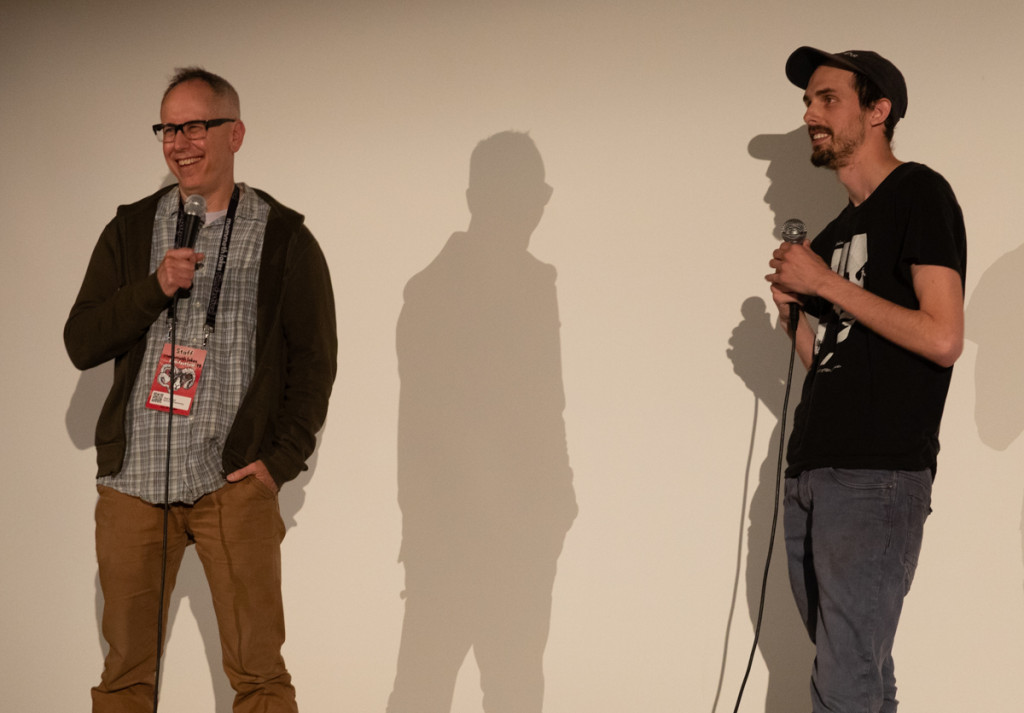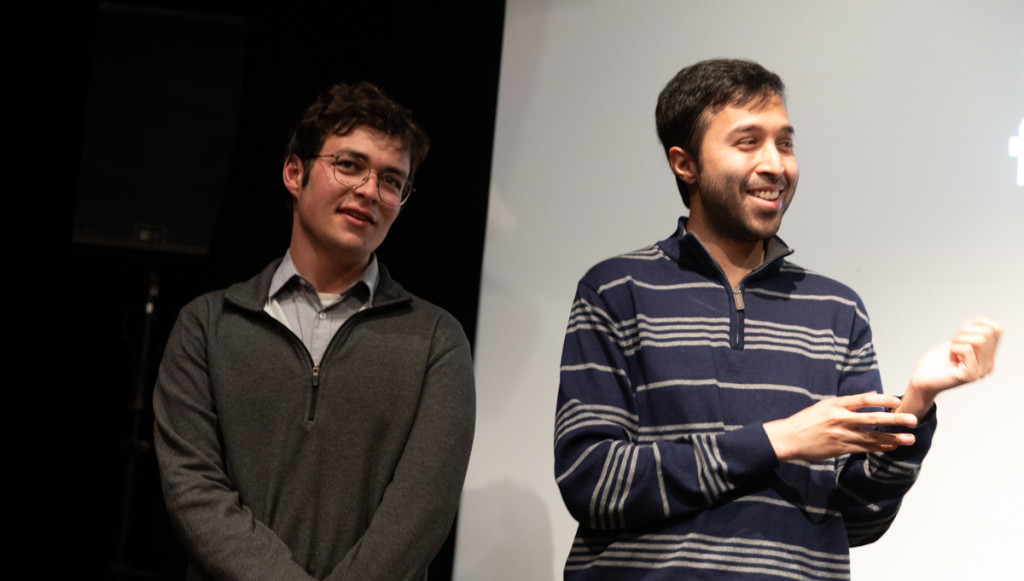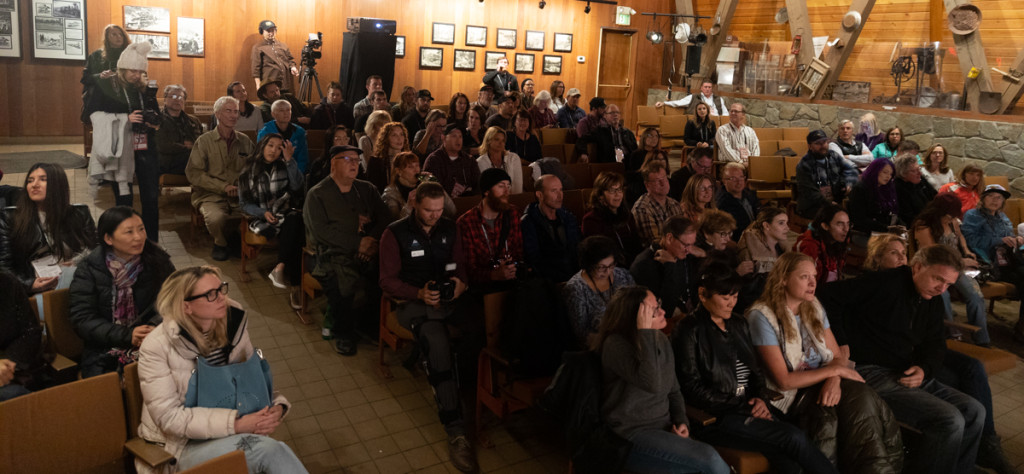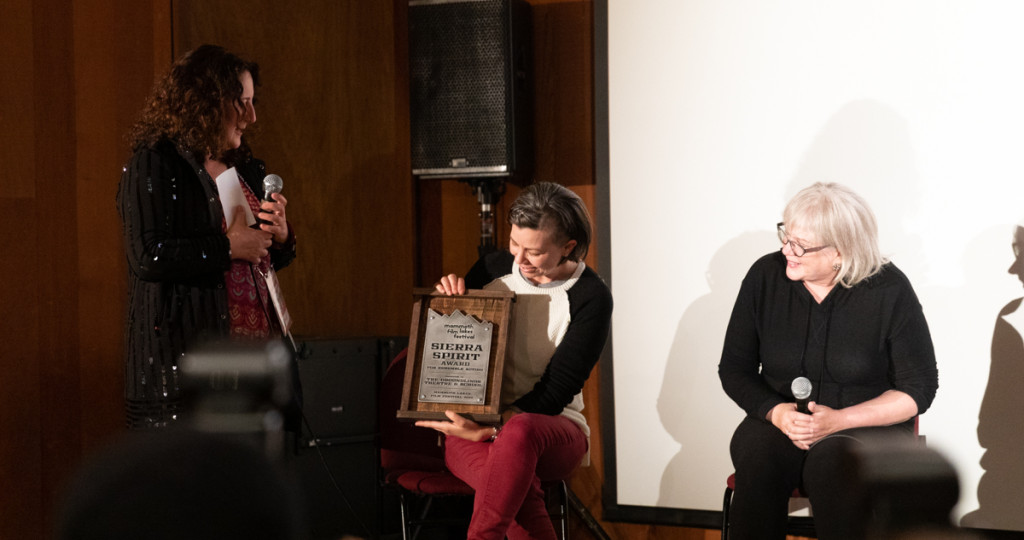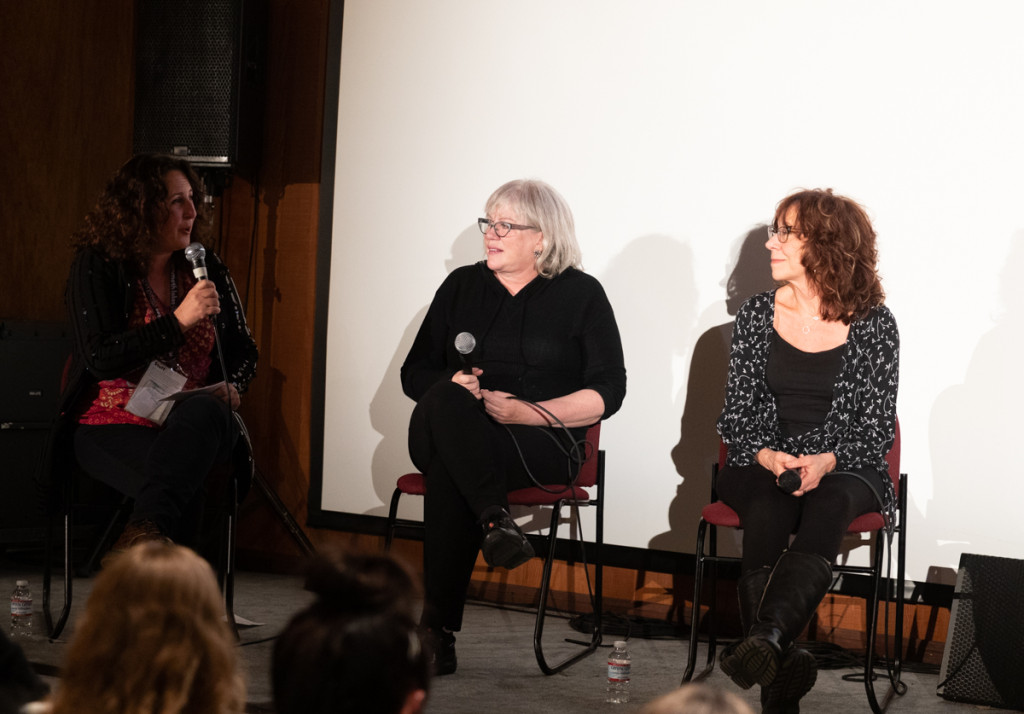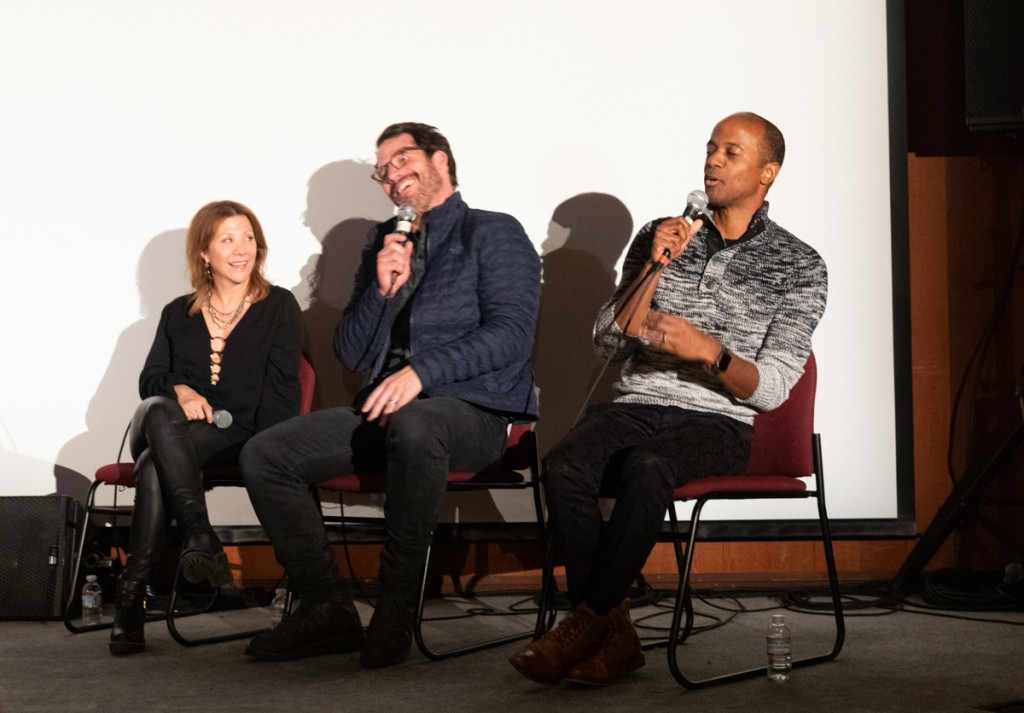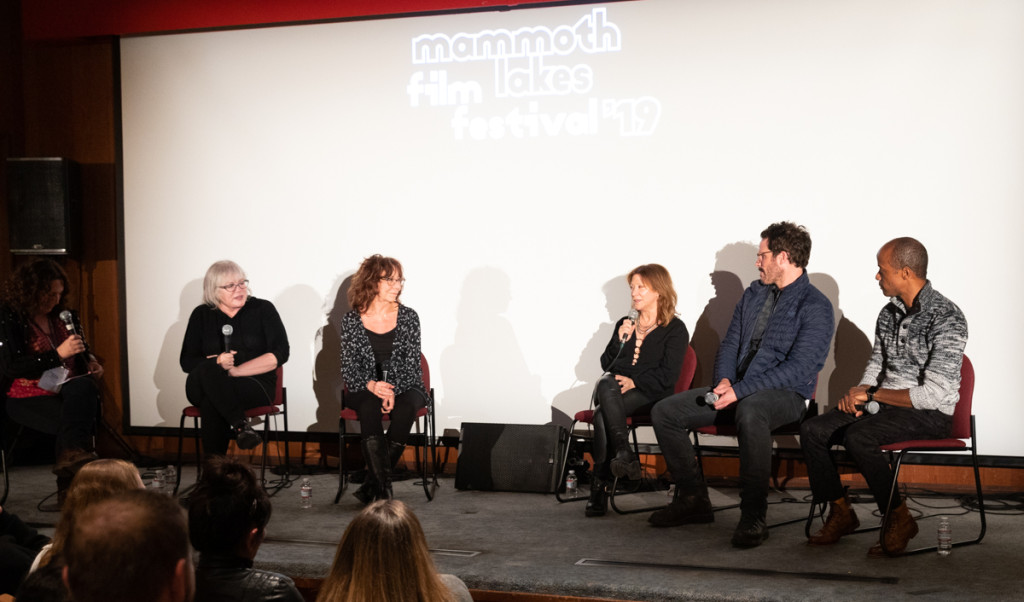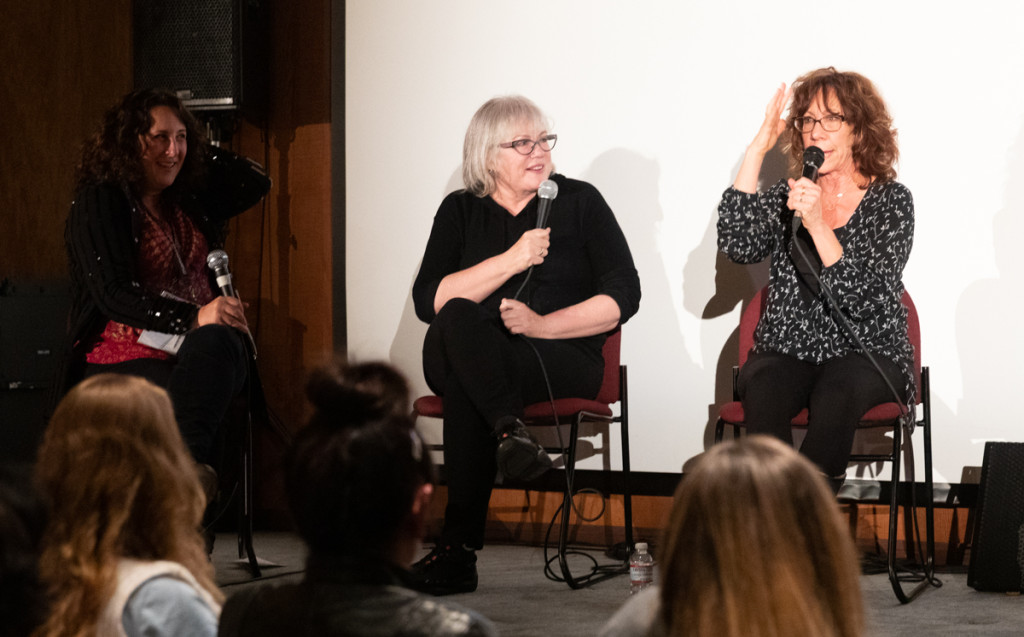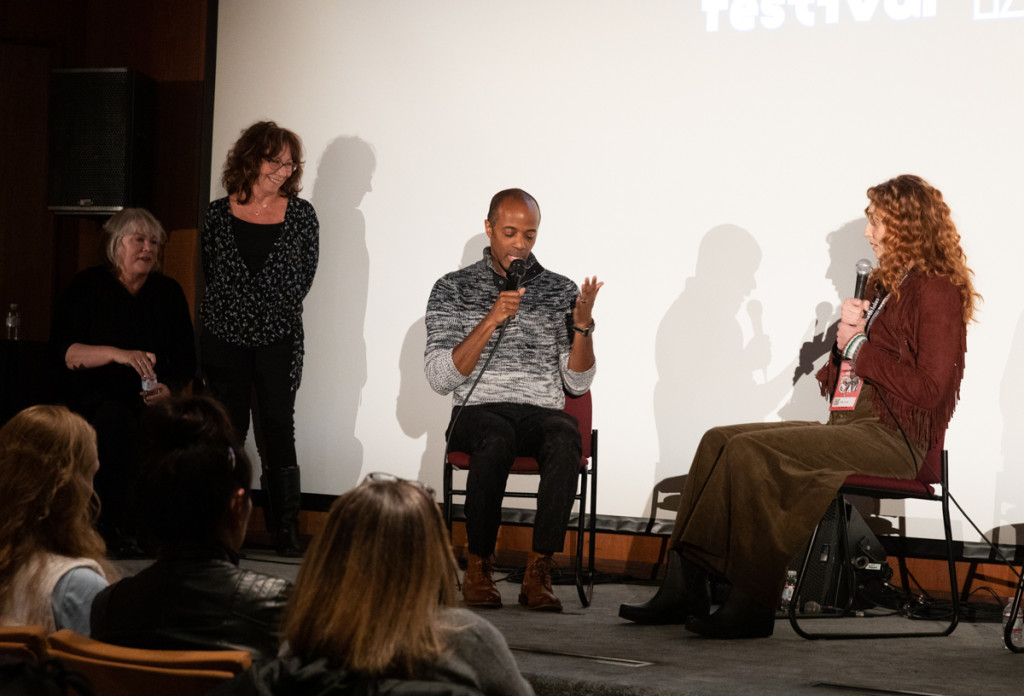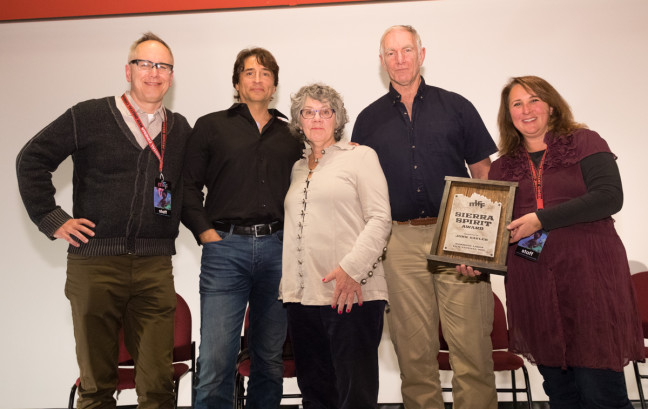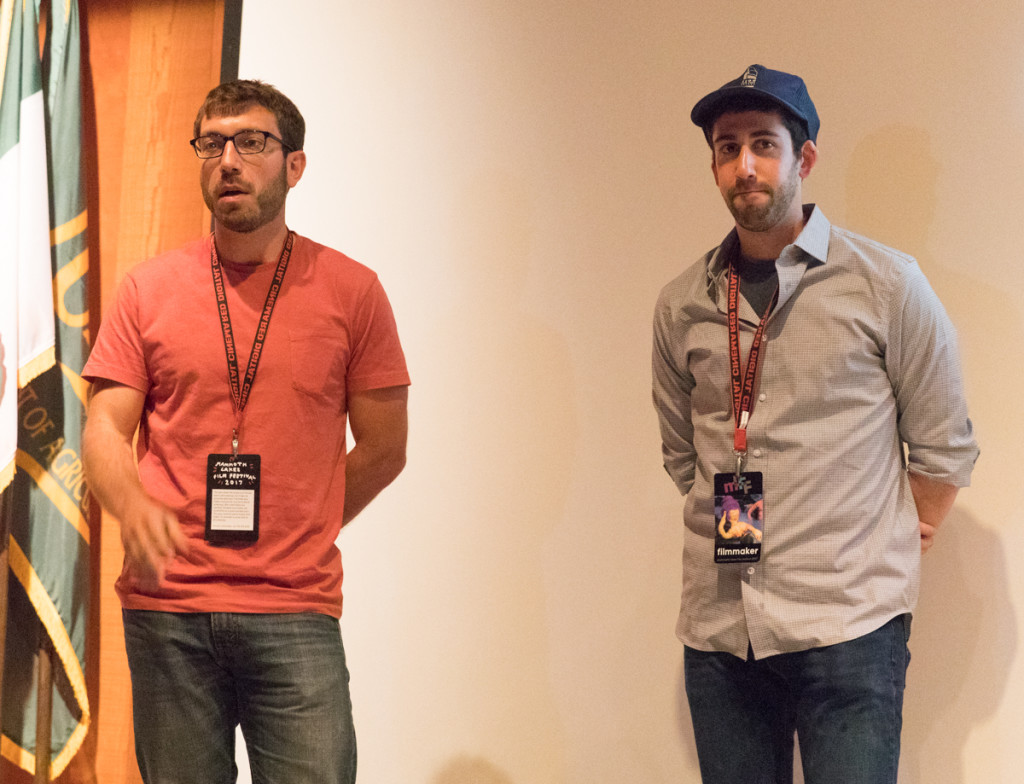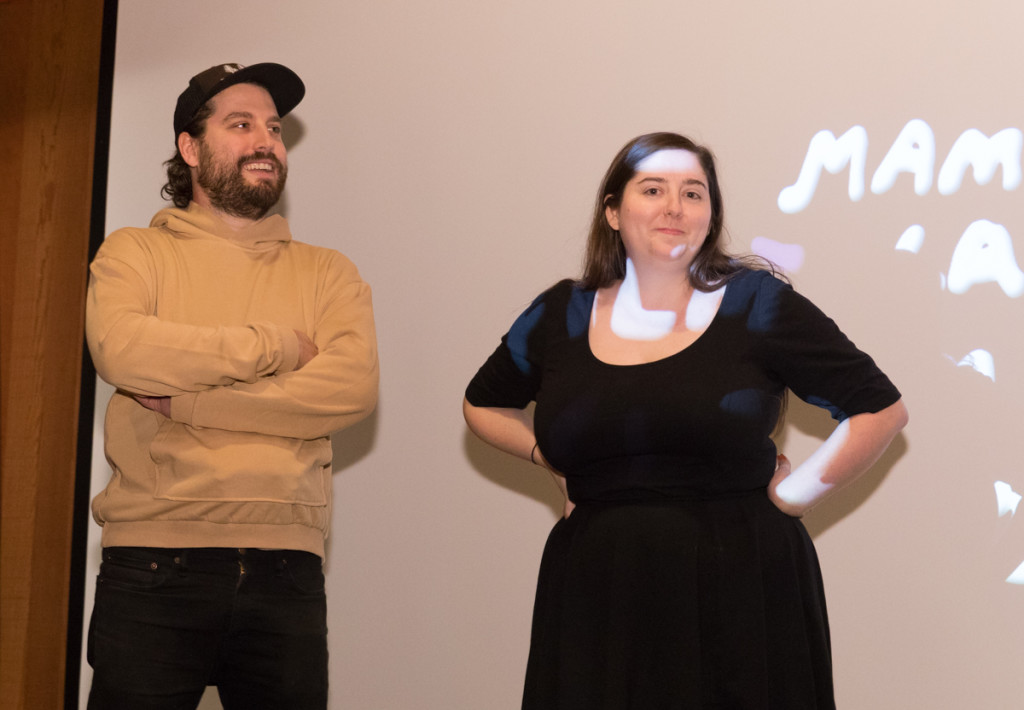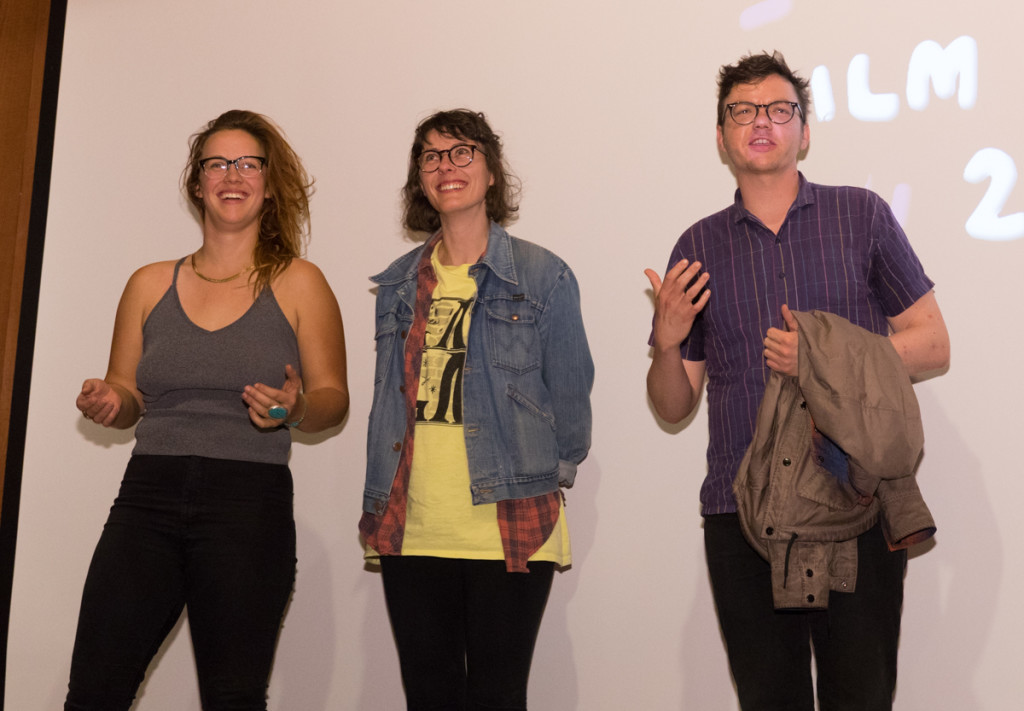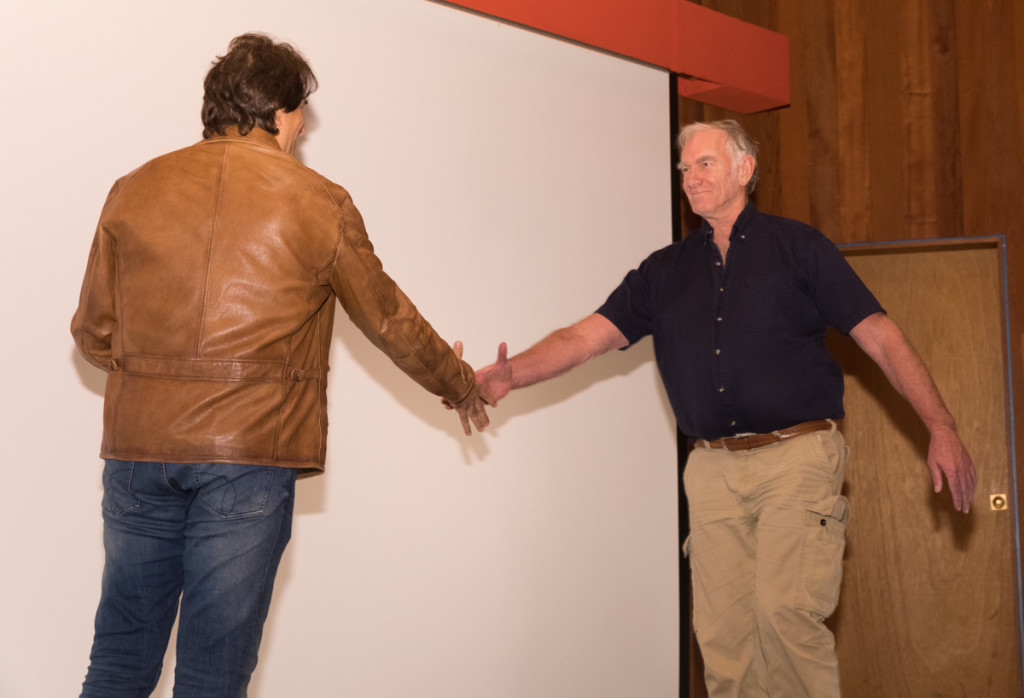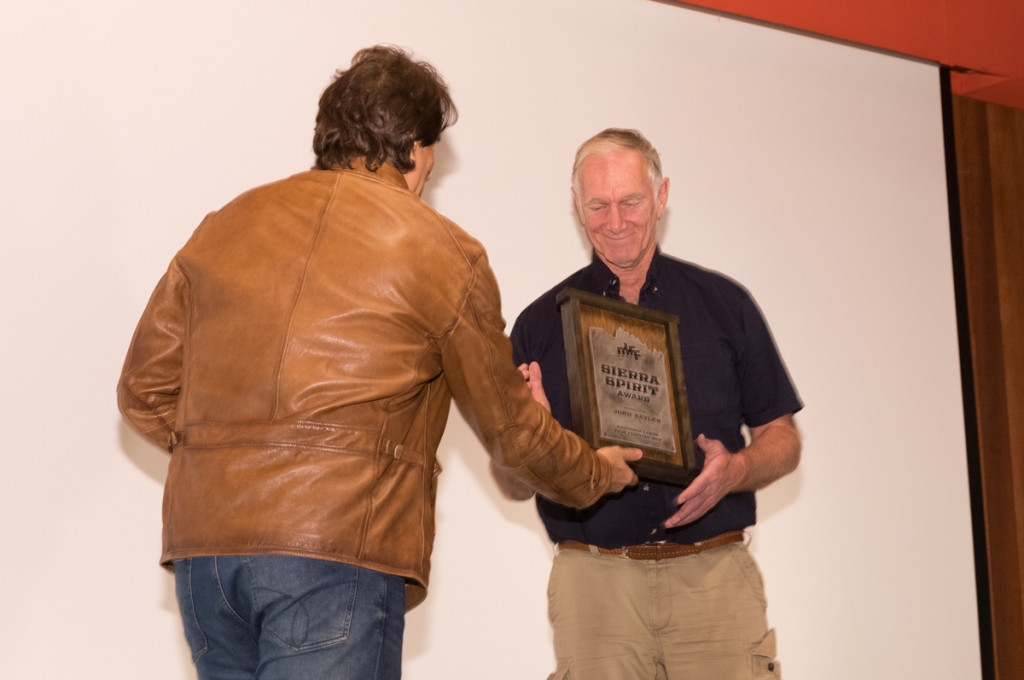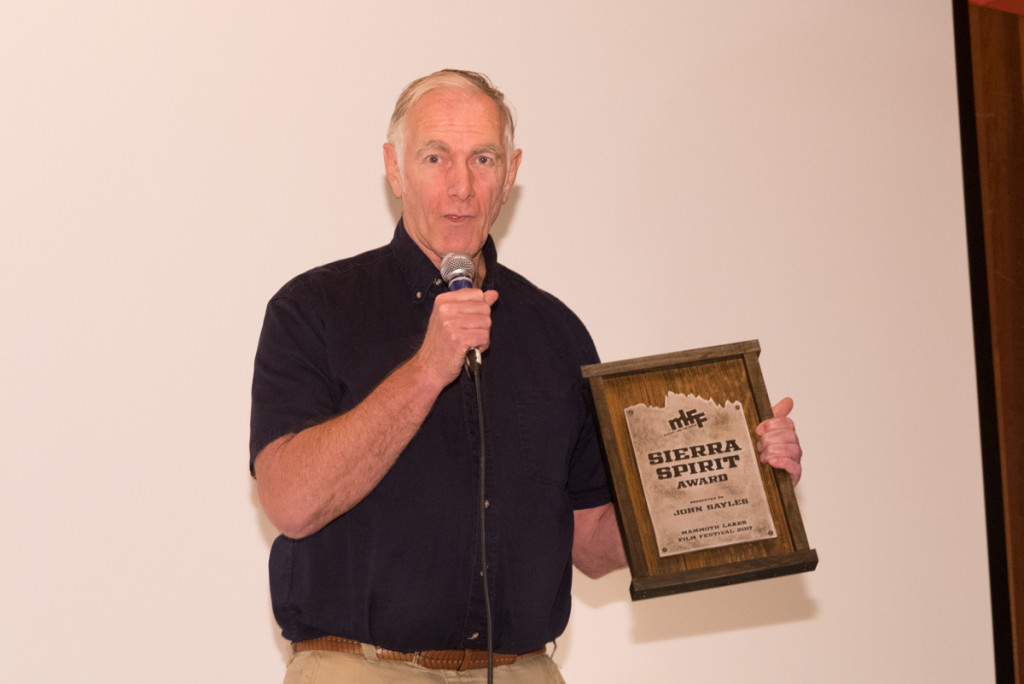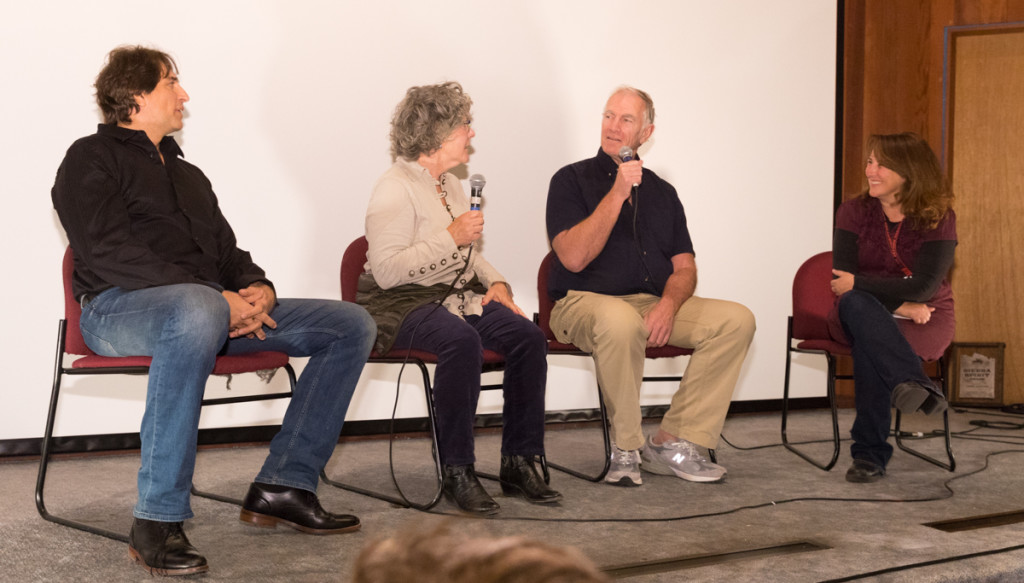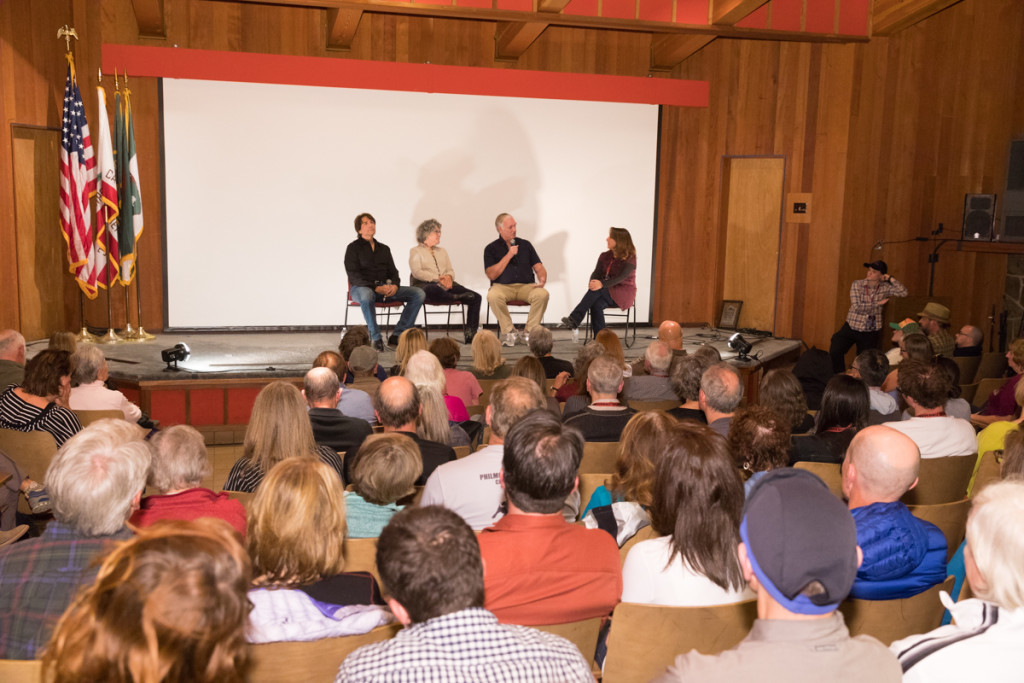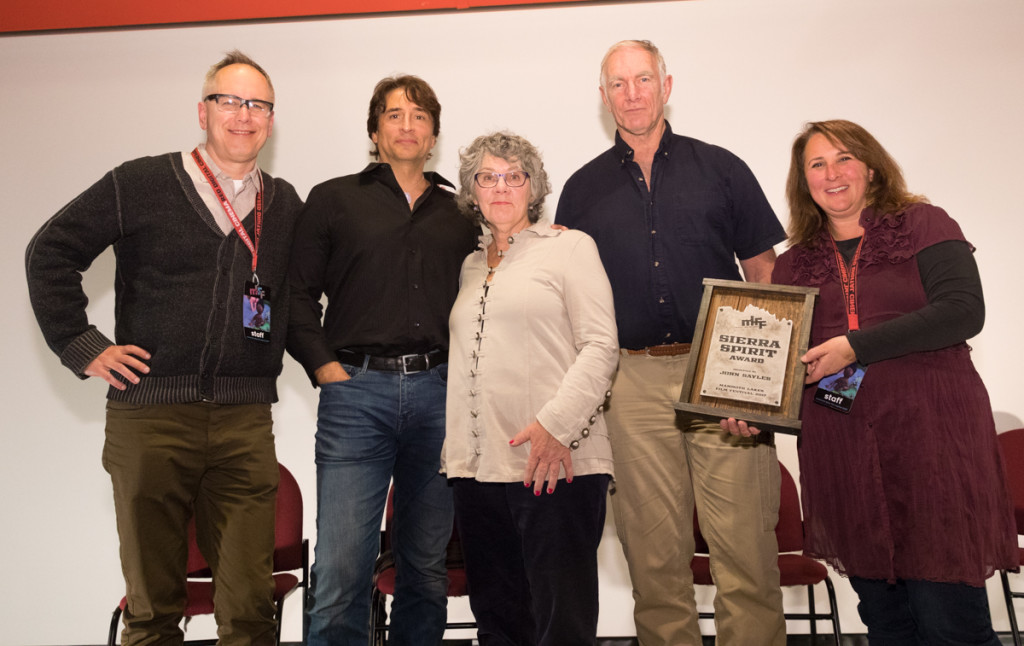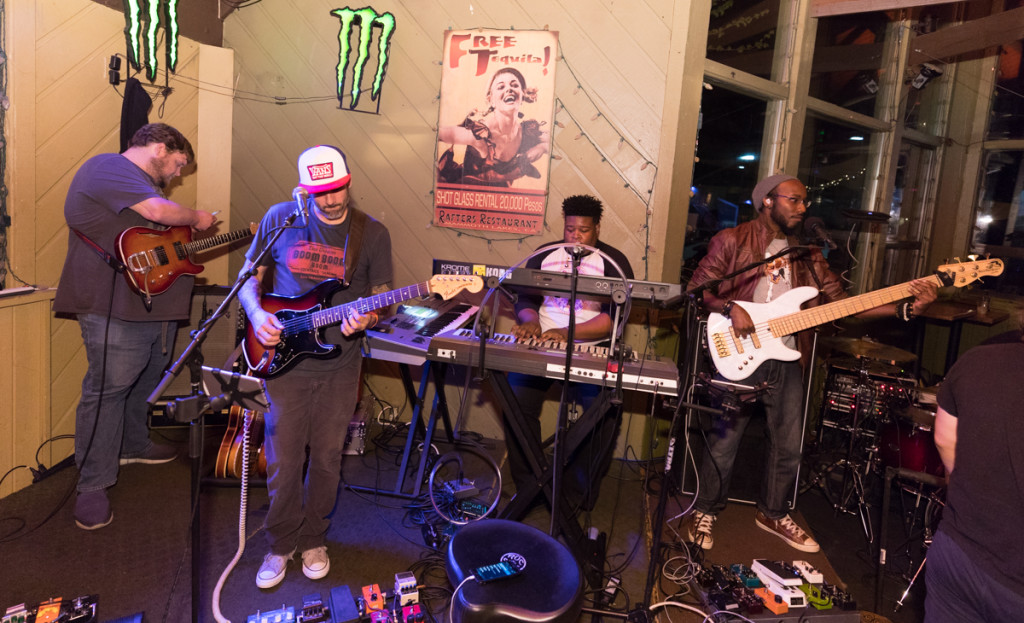What’s a Saturday morning without cartoons? As Day 4 of the Mammoth Lakes Film Festival 2019 began — with sun instead of snow showers — a screening of animated kids shorts began the day.
Narrated by the ever-irrepressible Flula Borg, the shorts included the hilariously sardonic Troll Bridge, an Australian short about an old Barbarian named Cohen and his friendly encounter with a troll he was planning to annihilate, and the rather surreal and beautiful Swiss short: Autour de l’Escalier, depicting a mysterious and fantastical town in which images and events repeat. As it concluded, Borg drew laughs saying “That’s Pittsburgh.”
Borg also offered his take on the Shleep which disappeared as a man drifted off to slumber, quizzically asking “Where did they all go?”
After this delightful start to the morning, festival filmmakers and press attended a panel on distribution and publicity among other topics, featuring Shalinni Dore; Andrew Borden, Katie Walsh, Gus Krieger, Mia Galuppo, and Sean McDonnell.
McDonnell, from releasing and production company A-24 explained the importance of making one’s work known on the festival circuit; Dore discussed the ways in which she can be attracted to providing press coverage for an unknown auteur, among the other topics discussed over mimosas, coffee, and quiche.
Shorts Block 4 included a charming but dark stop-motion animation depicting love, binary code, and a dissolving world in 11010; and the haunting cosmic images of Eyes at the Specter Glass from filmmaker Mathew Wade. Wade notes “This started as a project to see how far I could push my computer’s ability…I just started building these scenes and movements, I then wrote the score that I matched to it without even seeing the visuals again. At first I thought maybe this would just be a gallery piece, but then film festivals gravitated toward it.” Wade’s abstract vision of what appears to the creation of a universe or a space travel dream defies easy categorization; Wade himself replied to a question asking what the short meant, “I make up a different story each time someone asks me that. I don’t want to ruin other people’s take on it.”
Gone is a heart-breaking take on Lysistrata, a beautiful, funny, sad, and terrible response to women abandoning men and boys for 5 months and counting. We see a men’s support group of one counselor and three men, each with their issues; and we see one woman leaving, making a decision that tears at her heart as well as the viewer’s. A profound film from UK-based director Emma Sullivan.
Lemons, from Simon Werdmuller Von Elgg, was the director’s response to stories he’d listened to about child abuse and sex abuse. The film depicts a man who may or may not be a missionary revisting a childhood nanny who’d abused him. As writer as well as director, Von Elgg notes “When I moved to Nashville, the culture struck me as potentially being ripe for this kind of story about subtext.” He’ll be working with his lead actress and his producer again on future projects, asserting “We’re a team now.” The film has a gothic, tension-filled pace and palette that evokes a sense of dread in the viewer, even before its intent is revealed.
In Diva & Astro, director Angel Barroeta and his astonishingly skilled director of photography have created a work that “is really different. We wanted to do a piece all in one day. We shot using a telephoto lens from different locations.” Seen from a distance, the piece follows the parallel paths of the two title characters in a riveting street drama whose style as well as virtually silent story is a richly involving 9 minutes.
For director Ariel Gardner, the funny/sad take on dating culture in Los Angeles, Molly’s Single, became an exercise in practicality. “I shot on mini-DV because I wanted to stand out by making it look as dirty as possible. And I know how to use auto exposure and auto focus, not sure I wanted to learn on an AK rig.” He wrote out beats but allowed the actors to fill in their own dialog as he crafted a semi-autobiographical piece about a bad break up. “It was kind of a cathartic experience which began with me watching Somewhere over the Rainbow in a film clip on my phone.”
The narrative feature A Great Lamp from director Saad Qureshi and his highly collaborative cast including Max Wilde, who also provided scoring and animated elements, was a beautiful black and white piece about three lost souls: Max, a good-hearted, cross-dressing street kid posting flyers about his late grandmother throughout the town; Gene, a drop out from the world of insurance processing who is lying to his father about leaving his job; and Howie, who fears a recurring dream and hopes to see a rocket launch through binoculars. Set in the dark and often derelict looking streets of downtown Wilmington, N.C., the lushly filmed, moody piece has an interesting back story. “I was having a very rough time,” Qureshi reports, “so since my friends and I all love each other, we all quit are jobs to make the movie.” Cinematographer Donald Monroe laid out the film and locations daily, cast and crew while minimal, shared fun as well as filming a work which the director calls “really a combination of ideas from three different minds.” Monroe adds “With no crew I knew I had one light and black and white was easier for me to make a cohesive language.” Qureshi sums up the experience “It was the best moment of my life to see my friends together. Life can be a sad thing, but the best way to survive is to be with your friends.” The film, which premiered at Slamdance this year, will be screening at the Arclight Hollywood July 8th.
An Evening with the Groundlings, the renowned comedy theater troupe and school based in LA, offered a short documentary on the history of the group and its alums; Groundling Cheri Oteri’s hilarious short Turkey’s Done, and a second viewing of Groundlings’ member Ryan Gaul’s poignant and funny Jack. Oteri’s short was a straight-up hilarious revenge comedy of a cheated-on Philly wife on Thanksgiving; Gaul’s – discussed at length in yesterday’s review segment – is a sweetly humorous tale of putting a beloved pet to sleep.
What followed was a pure hour of delight, in which festival director Shira Dubrovner presented the group’s managing director, Heather de Michele with the Sierra Spirit Award.
Dubrovner, Sweeney, Sterling, above
Dubrovner conducted an absorbing hour-long panel celebrating Groundlings members “for life” Julia Sweeney, Ryan Gaul, Jordan Black, Mindy Sterling, and Cheri Oteri discussed how many years of Groundlings classes they took; current projects; working in a male-dominated world on Saturday Night Live – where many Groundlings alums found new homes; and the differences between the Groundlings rigorous Sunday Show, which the “best of the best” participate in following class training, before graduating to the Saturday company.
Oteri, Gaul, Black, above.
As Gaul says “We are like a weird gang. We’re addicted to improv, we love it.” Sterling seconded that assessment. “You do it for the love of it.”
The group discussed everything from the non-pay of Groundlings actors and their labor-of-love experiences in the theater, to performing on SNL, developing their characters, and more.
A highlight: Black and Gaul performed a short-form improv with an audience member: a father-daughter talk about car ownership, below.
To catch any of these performers live at The Groundlings — still located on Melrose Ave. in West Hollywood after all these years – stop by regularly: almost everyone on stage still drops by to perform. Black runs a regular monthly show called The Black Version, which he described as “long form improv. Audience members suggest a movie, and my cast and I do our ‘black version’ whether it’s the Titanic or whatever is suggested.” Sweeney, who just jubilantly returned to showbiz after a 15-year hiatus raising her daughter, is back doing improv regularly on Tuesday and Wednesday nights. Gaul can also be seen performing in The Last OG on TBS weekly.
Full day, fun night – and more tomorrow.
- Genie Davis; photos: Jack Burke



